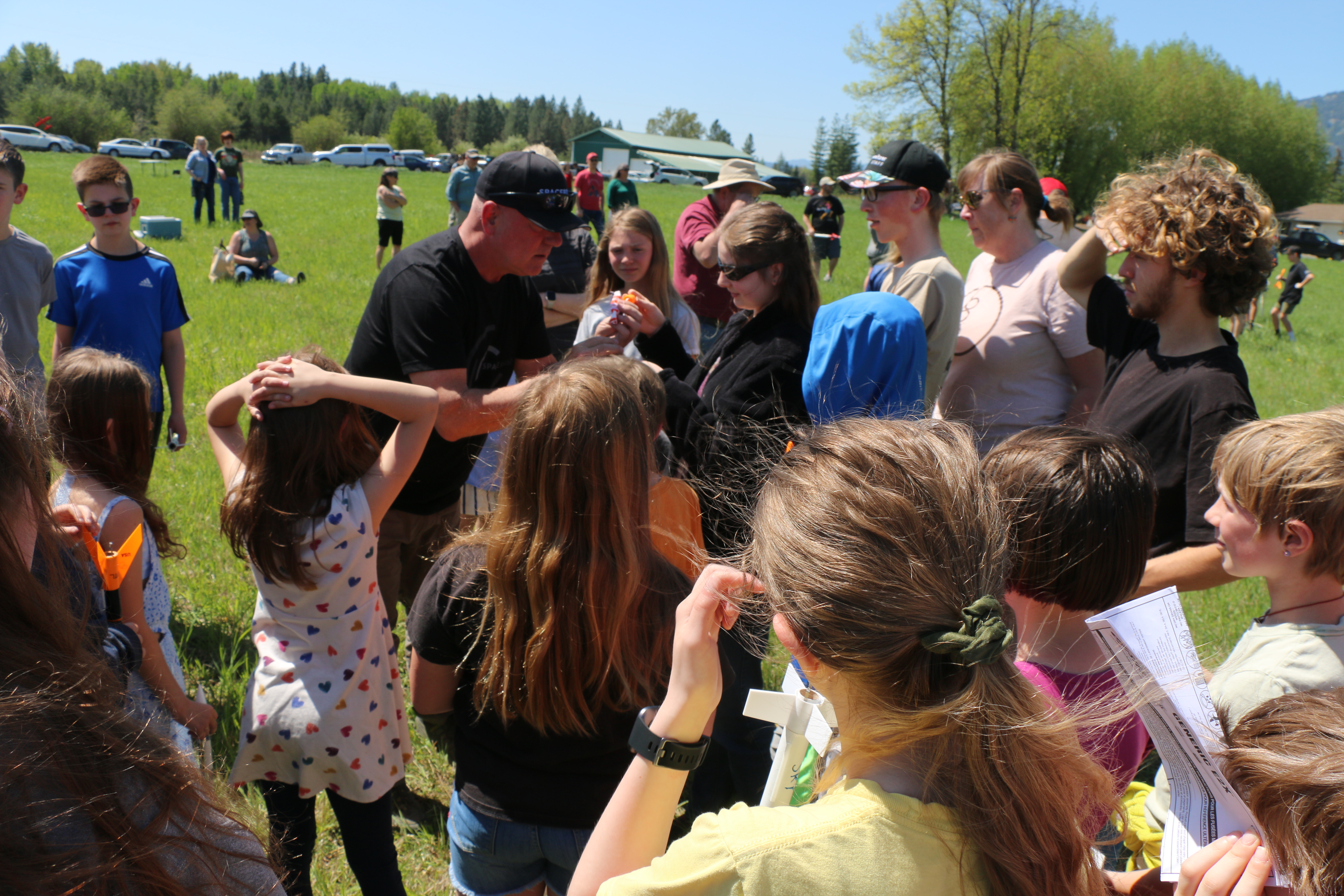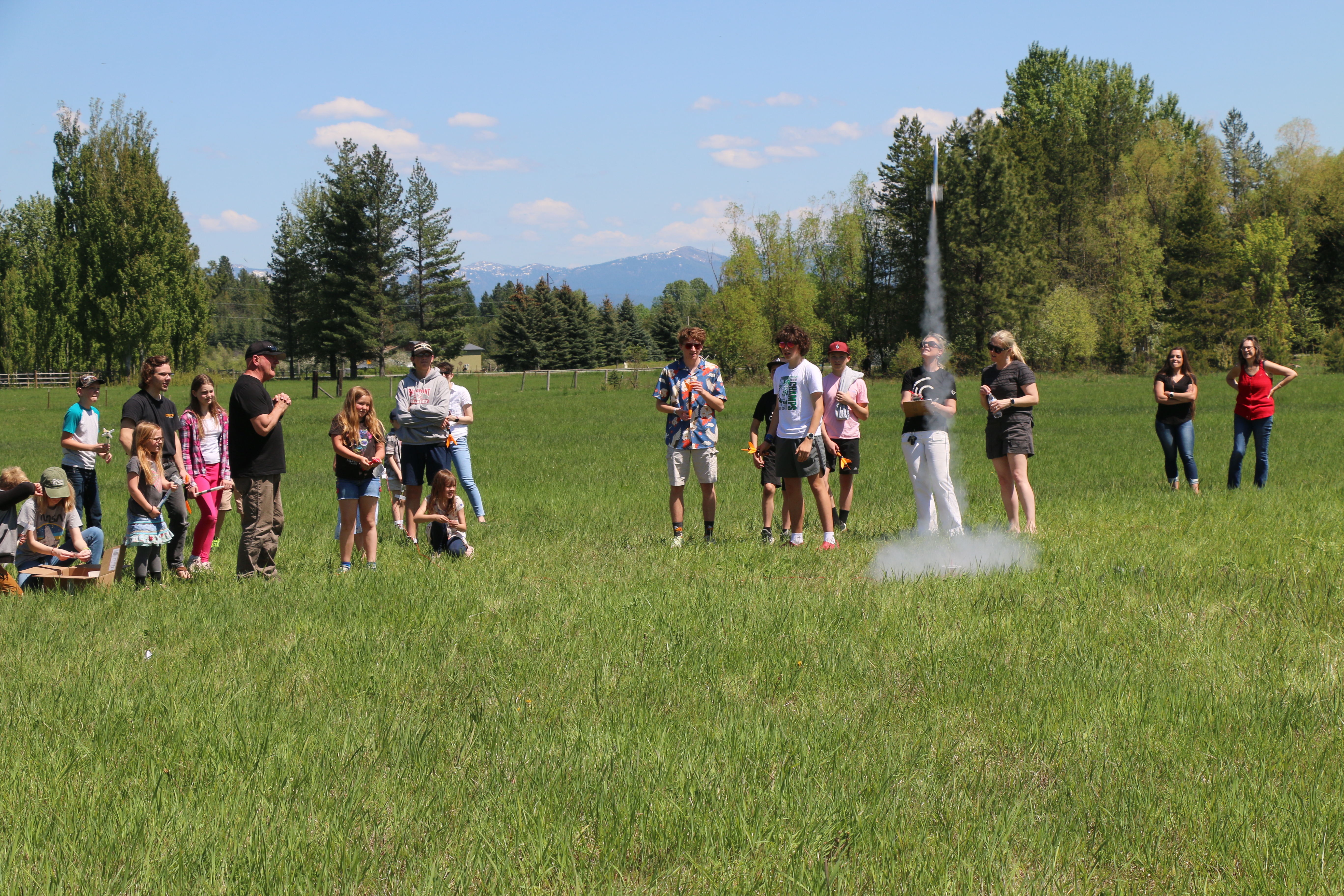Spacepoint set to launch new observatory
SANDPOINT — Looking up at the night sky, stars are everywhere — seemingly unlimited in their scope.
And, just like those stars, the opportunities in the space industry are as unlimited and full of potential, Spacepoint's Kyle Averill said.
That, he said, is part of the reason he launched Spacepoint, a new observatory that is located at the University of Idaho's Sandpoint Organic Agriculture Center. Launched in March, Spacepoint — a deliberate play on the new non-profit's home base — aims to create both interest in, and a pipeline to, all aspects of the space industry.
"What we have told kids is that it doesn't matter what you decide to do," Averill said. "It's not for test pilots exclusively anymore. You take whatever job you have here and you do on Earth [and you will need that in space]. People forget, we are in space. It's hard to put your mind around that. But the more you spend time on it, the more you think about it; we really are in space. We're orbiting a star. We're part of the solar system."
Spacepoint has been working on the observatory with the University of Idaho, initially targeting Schweitzer due to the elevation. However, with the construction on the mountain, Averill said those plans didn't work out at this time. It was then that they realized that an observatory at the University of Idaho's Sandpoint Organic Agriculture Center was the next best thing.
"We still wanted to deliver it this year," Averill said. "Really, we see it as a prototype, potentially, for what we ultimately want to do. It's the first time that I know that anyone's used this particular approach for an observatory."
From both a location and educational perspective, Averill said a "roll-off" roof observatory will be created using shipping containers with a retractable roof, allowing the use of Spacepoint's powerful telescope with a 14-inch reflector. The telescope station will take up half of the observatory, with a control room taking up the other half.
Because fiber internet is at the site, Averill said Spacepoint's observatory can be accessed remotely. It also allows schools and others to book time at the facility from anywhere in the state.
The durable nature of the shipping container will allow it to stand up to the region's weather. It also allows the observatory to be placed anywhere with minimal infrastructure with internet access via satellite.
"You could deploy [the observatory] anywhere. You could put it anywhere from Stanley to Boise as an example," Averill said. "It really didn't matter, the location. It could be in the middle of literally nowhere, which was important because Idaho is one of only two states that's designated as an International Dark Sky Reserve."
While the initial observatory will be crafted from the shipping container, Averill said Spacepoint has plans to add any number of features and functions as it grows. They would also love to build a network of similar observatories across the state — increasing access and getting around what may be cloudy skies in one area of the state.
"In the astronomical world, there's a lot more collaboration than people realize," Averill said. "For example … the first black hole that was actually ever imaged, that black hole was imaged by 18 different telescopes around the world."
Ideally, Averill said the observatories would be located in the "most remote and darkest places in the state." He envisions expanding its partnerships throughout the state's university and college systems, increasing access to the skies and interest in related careers and fields.
Although Averill is quick to point out, that is much broader than many people realize. Every career and every job on earth will be needed in space as people continue to reach out into the universe. Where there were once just the U.S. and the Soviet governments, there are now 12,000 companies involved in the space industry around the world — a multi-trillion-dollar business.
It's natural for people to be curious, to feel the need to explore. There is no doubt in his mind, Averill said, that people will eventually be living on Mars — and beyond — someday. While people picture astronauts tethered to a spaceship as they work in space, the reality is that every type of job needed on Earth will be needed in space.
"Think about waste management, recycling, something as simple as that," he said. "We don't think about it necessarily, but you're going to have to recycle. You're going to need plumbers. You're going to need electricians. You're going to need skilled trades."
Interested in chemistry? There's a need for that in the space industry. Interested in art? Those fields will be critical in designing future homes, spaceships, and more. Gardening? Envision the hydroponics bay on "Star Trek," where someone worked to grow some of the food the crew needed.
There is a huge opportunity for everyone interested to find a field that matches their interests and to be in the space industry.
"People think it's saturated and everyone's applying," Averill said. "That's not the case. Everyone isn't thinking about it right now. That's why I think it's an opportunity for this community and for the students in this community as well to really think hard about this."
Averill and his wife, Roxanne, love the outdoors and always loved visiting North Idaho. When they had the chance to move to the Sandpoint area, they took it. It was then that Averill said they got the idea for Spacepoint.
"The curiosity, the exploration, the discovery," Averill said of what attracts him to space. "As much as we know about the university, it's infinitesimal; it's so small compared to what's really out there."
A launch of the observatory is being held Saturday, beginning with a reception at 5 p.m. and a ribbon-cutting ceremony at 6 p.m. A tinfoil hat contest is planned, as is a Jupiter viewing party.
Information: spacepoint.org
 Kyle Averill helps local youth prepare their model rockets for takeoff at a May event.
Kyle Averill helps local youth prepare their model rockets for takeoff at a May event. Spacepoint founder Kyle Averill takes to local youths about rocketry, space, and the unlimited potential of both at a May rocket challenge event. The non-profit is celebrating the launch of its new observatory on Saturday, Oct. 28, at the University of Idaho's Sandpoint Organic Agriculture Center.
Spacepoint founder Kyle Averill takes to local youths about rocketry, space, and the unlimited potential of both at a May rocket challenge event. The non-profit is celebrating the launch of its new observatory on Saturday, Oct. 28, at the University of Idaho's Sandpoint Organic Agriculture Center.


